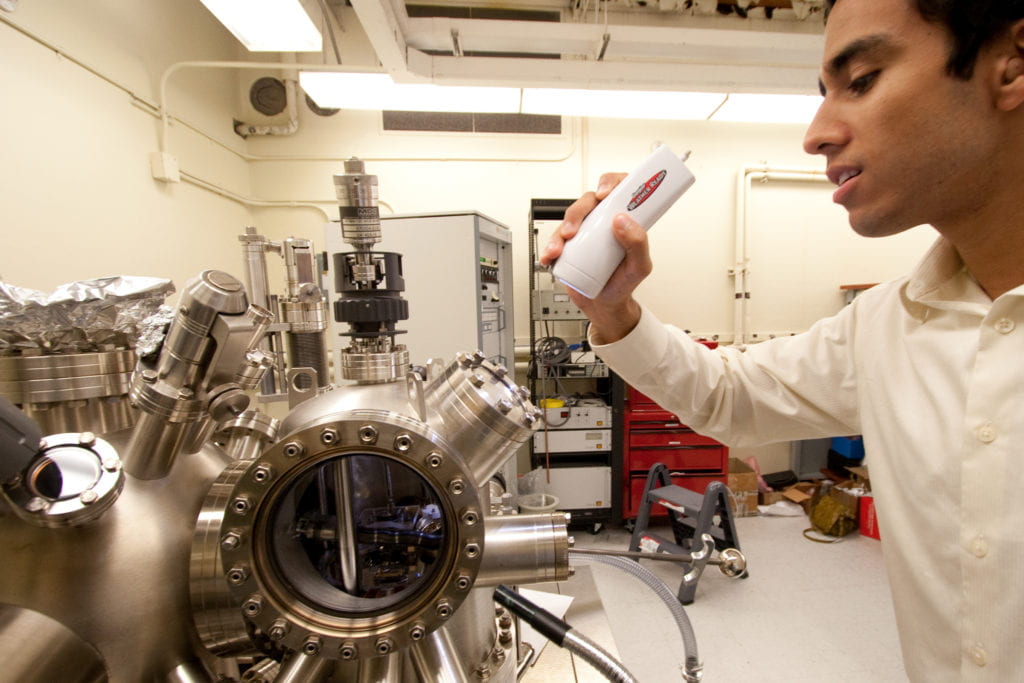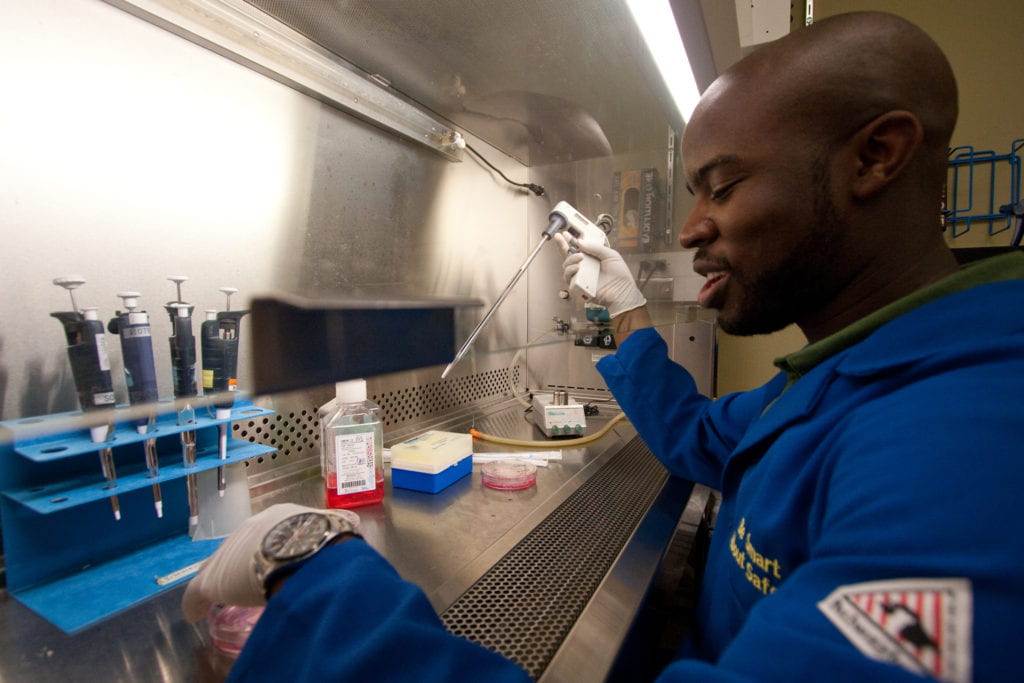Fostering tomorrow’s leaders
Summer Research and Competitive Edge programs give graduate students a head start.
Earlier this year, Julius Edson received an undergraduate degree in chemical engineering from The City College of New York. Now he’s a first-year doctoral student at UC Irvine. In between, he opted to spend eight weeks exploring the use of nanomaterials in treating bacterial infections as part of UCI’s Competitive Edge Program. Why? “I wanted to hit the ground running,” Edson says. “I wanted to start the fall semester knowing where I had to go, who to talk to when I needed help and, above all, having a support network.”
The UCI Graduate Division offers two such programs in which enrollees spend much of the summer on campus immersed in research projects, skills development workshops and team-building activities. The Summer Research Program is designed for undergraduates and master’s students considering doctoral programs, and the Competitive Edge Program is geared toward incoming doctoral and M.F.A. students.
Both facilitate collaboration with undergraduate and graduate UCI students and postdoctoral scholars, as well as world-renowned faculty. Targeted to students from diverse backgrounds, the programs draw participants from across the country, many the first in their families to attend college.
“Graduate school takes time, effort and a strong support network,” says Raslyn Rendon, director of outreach, recruitment and retention for the Graduate Division. “We are committed not only to increasing the diversity of master’s and doctoral students in all fields of study within UCI but to providing the infrastructure students need for long-term academic success.”
The Summer Research Program encompasses the Summer Undergraduate Research Fellowship program, the UC Leadership Excellence Through Advanced Degrees program, the California Pre-Doctoral Program(run through the California State University system) and the Historically Black Colleges & Universities program.
This year’s cohort of 22 Summer Research Program students from more than a dozen states lived in the campus’s Arroyo Vista housing complex for two months and participated in a rigorous combination of workshops, lab research and GRE prep – all intended to aid their application to and success in graduate school.
Sponsored by the Fund for the Improvement of Postsecondary Education via the U.S. Department of Education, the eight-week Competitive Edge Program – a component of the Diverse Educational Community & Doctoral Experience – aims to increase the number of minorities and women receiving doctoral degrees in certain disciplines at UCI.
The program offers such benefits as:
- Advance introduction to UCI faculty;
- Advance introduction to UCI campus resources;
- Early move-in to graduate campus housing;
- Acquisition of critical teaching skills through workshops and lectures; and
- Early mentorship from UCI faculty and peer mentors.
“This program is designed to be a bridge for our incoming doctoral students,” Rendon says. “At the end of the summer, our Competitive Edge students are familiar with UCI and all the many resources available – helping to integrate them into the fabric of doctoral education here.”
This summer’s Competitive Edge class comprised 23 new Ph.D. students from institutions as near as UCLA and as far away as the University of Michigan, Ann Arbor. Eleven were recipients of a Graduate Opportunity Fellowship, a multi-summer award designed to foster graduate study by facilitating the academic career development of students from educationally disadvantaged backgrounds.
In addition to providing summer program participants research stipends and on-campus housing, UCI’s Graduate Division – in partnership with schools and departments – hosted a slate of workshops and seminars that addressed such topics as time management and how to fund graduate education. On Aug. 21, students in both programs presented their work at the UCI Graduate Division Summer Research Symposium, which took place at the California Institute for Telecommunications & Information Technology.
“We have witnessed the success of summer program students in the number of prestigious awards and fellowships many of them have garnered over the course of their academic careers,” Rendon notes.
Almost 20 percent of participants receive National Science Foundation Graduate Research Fellowships. And more than a quarter return to assist the programs, many serving as peer mentors.
“Our Summer Research and Competitive Edge programs are just two of the myriad ways in which UCI helps nurture and develop tomorrow’s leaders in science, industry and academia,” Rendon adds.
Adrian Garcia, a first-year doctoral student in engineering participated this summer in the Competitive Edge Program under a Graduate Opportunity Fellowship, conducting research in a state-of-the-art laboratory under the guidance of world-class faculty.
“Not only was the program well structured but, more importantly, it allowed me to meet and learn from an incredibly talented group of individuals,” he says. “UCI offers a rich and diverse culture where I am encouraged to explore new ways of thinking.”

